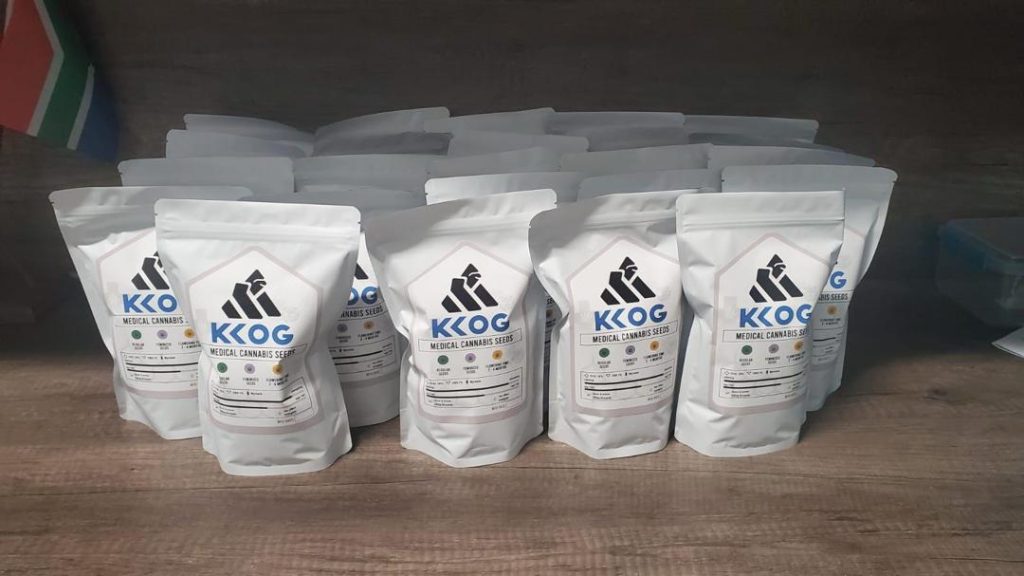Nigeria stands to benefit significantly from a multi-nation cannabis initiative led by KKOG. This initiative involves over 5,000 farmers and massive land investments across three countries. This ambitious project, projected to generate $2 billion, exemplifies
KKOG’s role in reshaping African economic possibilities.
The cannabis industry is rapidly emerging as a game-changer for Africa, and Nigeria is poised to be one of its largest beneficiaries. Thanks to strategic investments by King Kong Organics (KKOG), thousands of farmers across three countries are joining forces to lead an agricultural revolution focused on medicinal cannabis cultivation. By leveraging this plant’s versatility and medicinal properties, KKOG’s coordinated efforts with over 3,000 farmers in one nation, 2,000 in another, and the cultivation of 50 acres in a third country have set the stage for transformative economic gains.
Catalyst for Economic Transformation
KKOG’s initiative represents more than just agricultural development; it signifies a paradigm shift in how Africa engages with high-value crops in the global market. The project’s expected $2 billion in revenue underscores its potential to uplift entire communities, generate employment, and bring foreign exchange earnings, making it a cornerstone of national economic strategies.

Case Study: Zimbabwe’s Lucrative Cannabis Project
Zimbabwe is a compelling example of the cannabis industry’s potential in Africa. The country is advancing a 2,500-hectare cannabis cultivation project that involves at least 300 farmers and offers tangible economic benefits. The government of Zimbabwe stands to earn $5 per seed tax, which, given the 10,000 plants per hectare, translates into $50,000 per hectare or a staggering $125 million per cultivation cycle. Annually, this equates to $250 million in revenue.
More importantly, the small farmers involved in this initiative are shifting from low- revenue crops like tobacco—where they earned roughly $2.50 per kilo—to cannabis,which fetches $140 per kilo. This transition demonstrates how KKOG and its partners transform livelihoods by introducing sustainable, high-value agricultural products that create lasting economic impacts.
Expansion Across Africa: Mali and South Africa’s Collaborations
Building upon the success seen in Zimbabwe, KKOG has secured a cannabis seed project with the Malian government, positioning the nation for economic resurgence through medicinal cannabis cultivation. By fostering such partnerships, KKOG showcases its commitment to regional growth and collaboration, creating a model that other countries can replicate. In South Africa, negotiations for a similar offtake project in KwaZulu-Natal indicate that the cannabis industry’s potential is not limited to one or two countries but extends to regions with varying climates, agricultural practices, and capacities. Each country’s involvement adds to a comprehensive approach that aligns KKOG’s business objectives with sustainable development goals.
Interest from Uganda, Kenya, and Central Africa
KKOG’s vision goes beyond existing partnerships. Countries such as Uganda, Kenya, and the Republic of Central Africa have expressed interest in larger, more expansive cannabis projects. This growing interest is a testament to the economic potential of cannabis cultivation, as it positions participating countries to leverage their agricultural resources for high-value global markets.
KKOG’s Role as an Economic Driver
Central to this transformation is KKOG’s ability to mobilize investment, provide technical expertise, and ensure access to global markets. By engaging local communities and building robust infrastructures, KKOG demonstrates a model for ethical, inclusive economic development. Smallholder farmers gain increased incomes and access to training, technical resources, and stable markets.
The potential for this sector is immense. According to estimates, Africa’s cannabis industry could be worth $46 billion globally by 2027. This growth is predicated on coordinated, transparent initiatives that empower communities while attracting sustained investment.
Global Economic Implications for Nigeria
For Nigeria, being part of this transformative movement offers immense national and global benefits. The country’s inclusion in the multi-nation initiative ensures that it remains at the forefront of the medicinal cannabis market. Beyond the projected $2 billion revenue, Nigeria stands to gain from increased job creation, improved agricultural infrastructure and heightened global visibility in a rapidly expanding market.
Cannabis cultivation also presents an opportunity to diversify Nigeria’s economy, which remains largely dependent on oil exports. By developing alternative revenue streams and creating a robust value chain for cannabis production, Nigeria can safeguard itself against global commodity shocks and foster sustainable growth.
Challenges and the Path Forward
While the promise is significant, challenges must be addressed for its full potential to be realized. Policymakers must create a favourable regulatory framework that ensures transparency, protects investor rights, and promotes ethical cultivation practices. This will involve balancing public health concerns with economic opportunities and addressing any political or bureaucratic hurdles that may emerge.
A Future Built on Collaboration and Innovation
KKOG’s efforts underscore the importance of collaboration and innovation in driving Africa’s cannabis industry forward. By bringing together farmers, governments, and international partners, they have created a model for sustainable economic growth that transcends borders and empowers entire communities. As Nigeria and other participating countries continue to develop this industry, the benefits will extend beyond agriculture, positioning Africa as a key player in the global cannabis market.
In conclusion, KKOG’s cannabis initiative is more than a cultivation project—it is a catalyst for economic transformation that can lift millions out of poverty, strengthen economies, and foster regional unity. With $2 billion in projected revenue, thousands of farmers engaged, and growing interest from across the continent, the future of Africa’s cannabis industry has never looked more promising.

